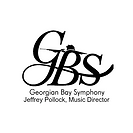Back Stage with the Librarian
- Nov 17, 2017
- 2 min read

The final product of an orchestra is the live performance. To achieve the goal, of a high level of audience appreciation, many tasks must take place. A number of these are discernible: the conductor must acquire a fluent knowledge of the score, the performers must learn and practice their parts, and the general manager and others must arrange for the venue, tickets, marketing, lighting, stage set up, etc. While all tasks lead to a successful performance one task that is less visible to the audience is the orchestra librarian.
Hi, I’m Rob Davidson, the GBS librarian and I have been a member of the viola section for about 10 years. I’ve been the symphony librarian for a year now. I would like to take a few moments and share some of what I need to do to prepare the orchestra for a concert.
It all begins in February.
Our Conductor, François Koh, provides me with a list of repertoire for next season in February. My first task is to locate the works. There are four possibilities: a work may be in our music library; a work may be public domain and therefore downloadable from the internet; or if not available on the internet or still having copyright, would need to be rented, or purchased.
Rent, Own, Purchase, Download, that is the question.
Whether a work is in the library, downloaded from the Internet, rented, or purchased, the librarian must ensure that enough parts are available for each musician. Extra parts are created for rehearsals and some players, who may only be joining us on concert day need to have their parts mailed out. Copies of parts are obtained or created, edited and then, taken to the printer. Once printed they must be folded, labeled and placement in musicians’ folders before they are ready to be handed out.
Put a bow on it.
To make the most efficient use of rehearsal time music need to deliver to the Concert Master and the Principals prior to the first rehearsal. This allows time to decide on bowings (up/down bows, slurs and articulation). Having the string section play with synchronized bowings is visually appealing and contributes to a unified sound. Parts, for all other players, are distributed at least a week before the first rehearsal. Extra parts are kept on hand for player substitutions in case of absences.
Put it to bed.
My job does not end with the concert. Parts need to be collected, collated and returned to the symphony library or shipped back to the publisher. Any new music purchased needing to be catalogued. Any missing parts need to be found.
The job of librarian has two main rewards: the gratitude of the members of the symphony and knowing I have contributed to the audience’s enjoyment of great works of music.

















Comments